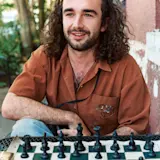Most of us seem to possess an underlying essence that makes us who we are — a constant that remains with us throughout our lives.
This essence has different names according to various spiritual or philosophical traditions. Buddhists call it the "self," but reject the idea that we all have a unique self that sticks around throughout our lifetimes. Other monotheistic religions might call this essence a "soul" that outlasts our physical bodies and is judged based on our worldly deeds after death. Other philosophical traditions might refer to this as our "ego."
While people have pondered these concepts for millennia, neuroscientists and psychologists are just starting to unravel many of the neurological and environmental mechanisms that combine to create this perception of integrated selfhood.
In his new book Being You, University of Sussex neuroscientist and consciousness researcher Anil Seth describes five core components that contribute to our conscious experience ...















